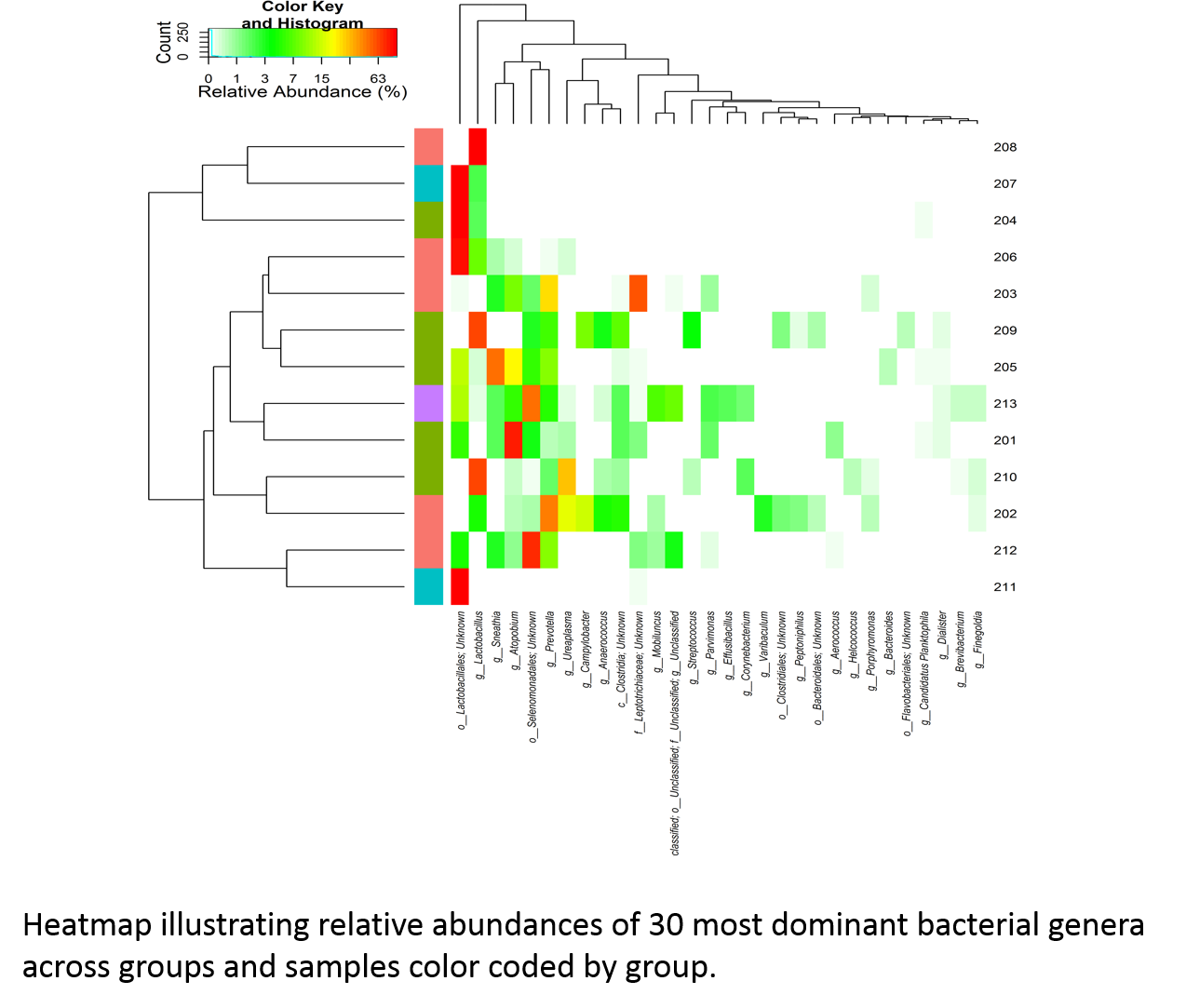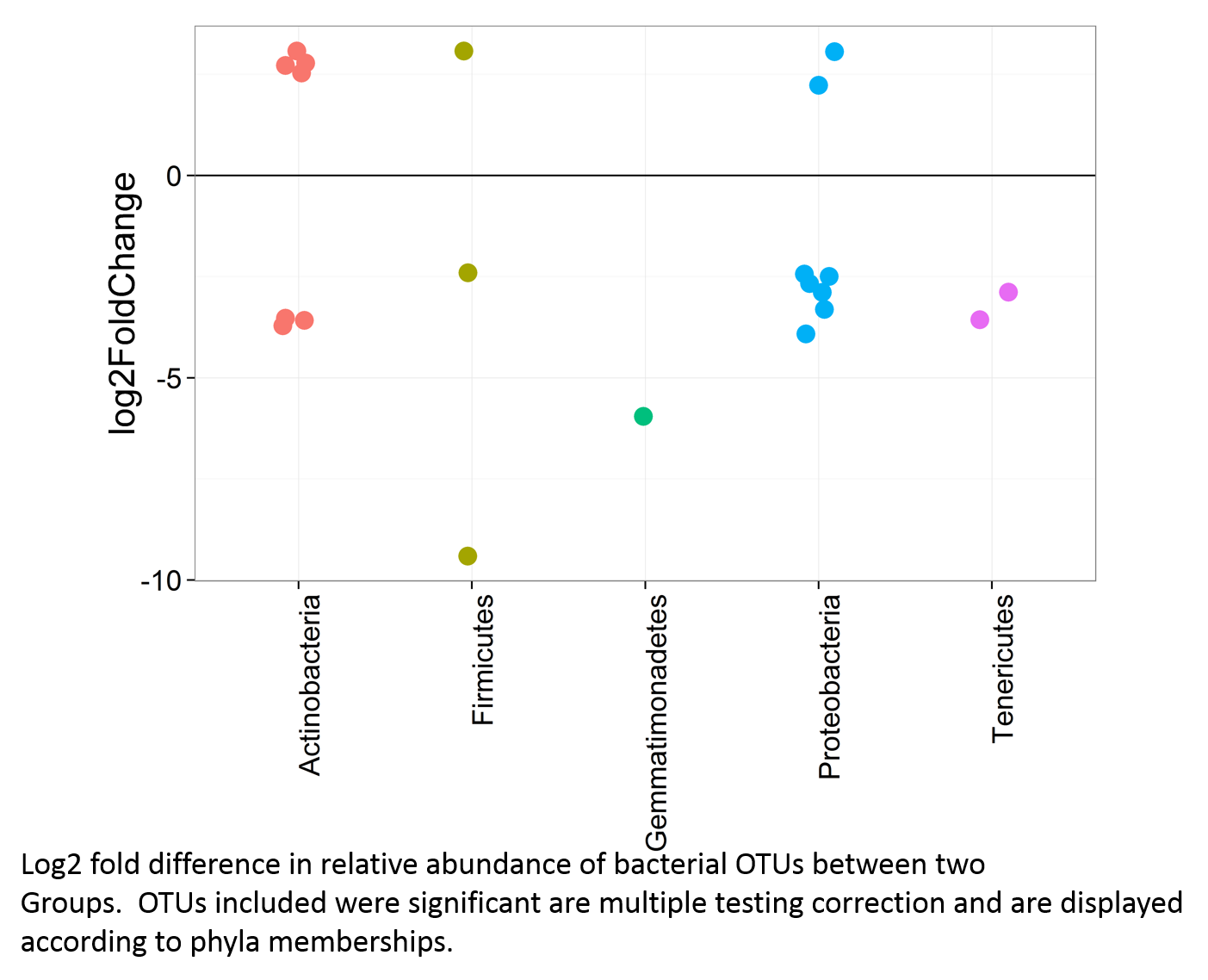
Biostatistics
Biostatistics and Consulting:
Amplicon and metagenomic sequencing methods inherently result in datasets which are complex to analyze and can be difficult to interpret. Our biostatistics team aims to simplify the process for our clients by providing support dependent on the specific needs of a client. Most often, our support is used in preparing relatively quick and cost-effective exploratory analysis reports; however, we enjoy building meaningful partnerships with our clients.
We can help you in all stages of your project journey:
Conceptualization & Experimental Design
Interpretation & Manuscript preparation
Advanced Data Analysis & Visualization
Integration with Additional Data Modalities
Microbiome Product Investigation & Marketing Claim Development
Getting Started with Consulting:
Our goal is to help you analyze the data we are providing within the specific biological context in which you collected your samples. That context may be experimental, observational, or clinical. Whatever the case, the specific questions and goals that motivated your sample collection are the basis for our analysis.
Take the first step with a free study consultation with the RTL Genomics Team discussing; the samples involved, the study design, and the primary goals of the project. From this consultation, we will provide an estimate of the time and cost to perform work. Unlike some of our competitors, we typically do not charge for analysis based on the number of samples, but rather based on hands on time to complete work (depending on project specifics). For biostatistics projects tied to in-house sequencing orders, basic bioinformatics services leading to generation of OTU tables, taxonomic assignment, and phylogenetic tree estimation are included at no further cost.







DELIVERABLES:
Upon completion of analysis, you will be provided with a PDF report that summarizes the methods and results generated from your data, complete with tables, plots, and additional supplementary files.
Using RTL Genomics figures in a publication - Any figures produced in the report can be requested as a publication-ready image file. We have found that most journals accept TIFF files with ‘lzw’ compression, whereas providing in this format can expedite the time to papers being sent out for initial review and the production phase after article acceptance.
Custom data visualization – The figures produced in our exploratory reports may meet technical requirements for publication, but are often changed to clarify results, improve the impact of important findings, or to meet journal-specific guidelines. Clients are encouraged to discuss figure presentation strategy with the RTL Genomics team if intending to publish figures we have prepared. To that end, it is common for RTL Genomics team members to author papers with clients and collaborators where a team member has made substantial contributions.
What can I expect from a standard analysis report?:
A typical analysis will follow a template developed by RTL Genomics and under continual improvement to provide rapid, quality insights into (1) data quality and coverage, (2) alpha diversity, (3) beta diversity, (4) taxonomic composition, and (5) differential abundance testing to identify lineages that vary significantly according to study factors. An abbreviated sample report can be downloaded here to view what this looks like in application.
Pricing – Biostatistics consulting is provided at $150/hr and pricing quotes are estimated based on a time estimate to complete work. Depending on complexity, most exploratory analyses can be completed in 3-9 hours ($450-$1500). If significantly more time is required to complete analysis compared to initially discussed, client will be consulted prior to engaging in work. More complex analysis and consulting assignments are quoted on a case-by-case basis.
Turn-Around Time – Time to complete analysis requests depends on several factors (e.g., complexity, current work queue), but most ‘simple’ analysis requests are often completed within 2-4 weeks of data availability.
EXAMPLE ANALYSES:
Although by no means a comprehensive list, the following are examples of commonly used approaches and statistical tests in standard reports versus those which have been used in more advanced consulting:
Standard Methods: Parametric and non-parametric group-wise tests (ANOVA, ANCOVA, Kruskal-Wallis, Chi-Square Independence testing, linear regression, correlational analysis), pairwise testing, rarefaction survey, sequence count normalization (e.g., rarefy, stratified resampling), multivariate analysis (PCoA, PERMANOVA, beta dispersion testing; using variety of distance matrix options), and differential abundance testing (e.g., ANCOM-BC).
Advanced Microbial Analysis: More varied, we are familiar with an expanded array of univariate and multivariate techniques which may be applied in a microbiome or community ecology study, such as: expanded use of general linear model (e.g., weighted regression), generalized linear model (e.g., logistic regression, risk estimation), power analysis, various ecological transformations, predictive modeling (especially relating microbial data to host/patient outcomes), and meaningful integration with additional data modalities. Examples more unique to microbiome literature include experience with clustering techniques, community state type (CST) methods, network analytics, and methods for inferring function from 16S OTUs/ASVs (e.g., PICRUSt, Tax4Fun2).
Additional Experience: Though microbiome analysis through 16s barcoding and metagenomics makes up the bulk of our workload, we appreciate opportunities to work outside our main focus area and have provided biostatistical support in other domains. Examples of past work have included transcriptomic analysis, phylogenetics, outcome data, and clinical trial consulting. Prospective clients are encouraged to reach out with any inquiries.
TALK TO US ABOUT YOUR STUDY:
If you would like more information or have any questions, please contact us and we would be happy to discuss.
